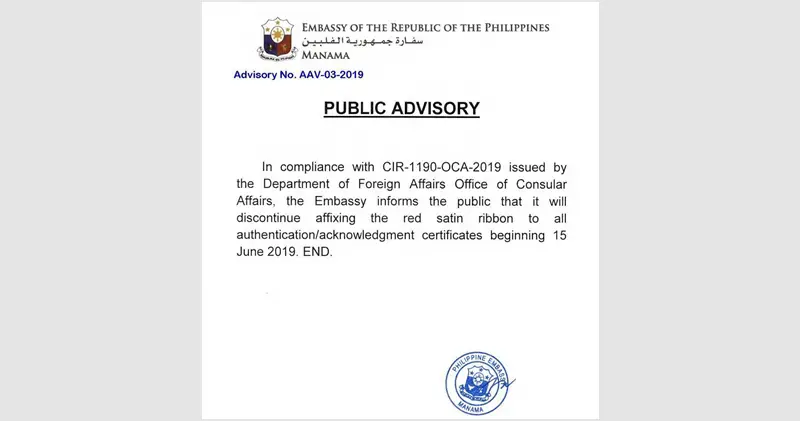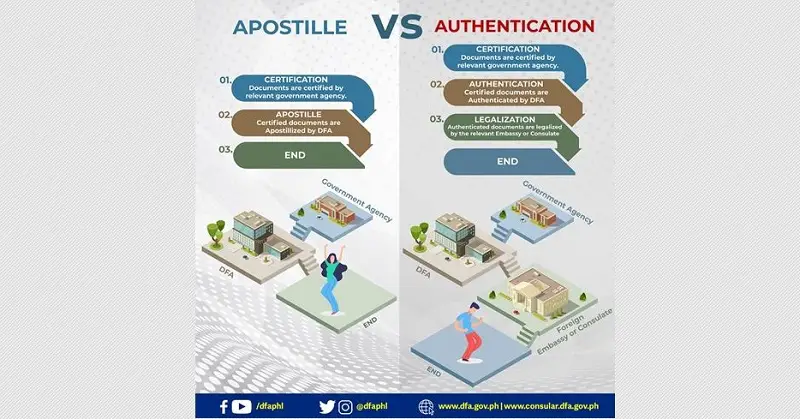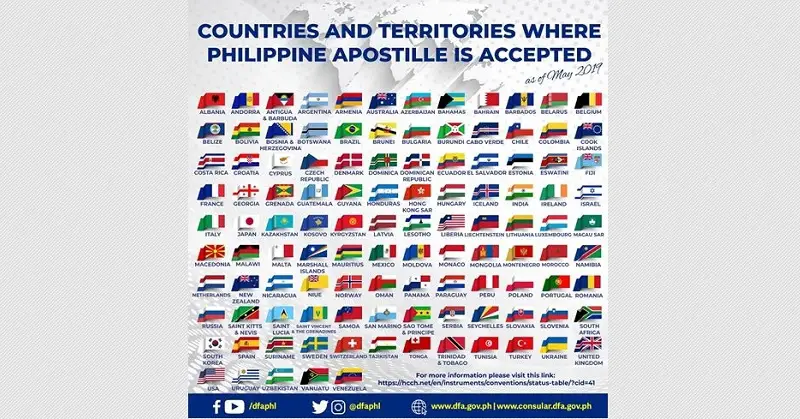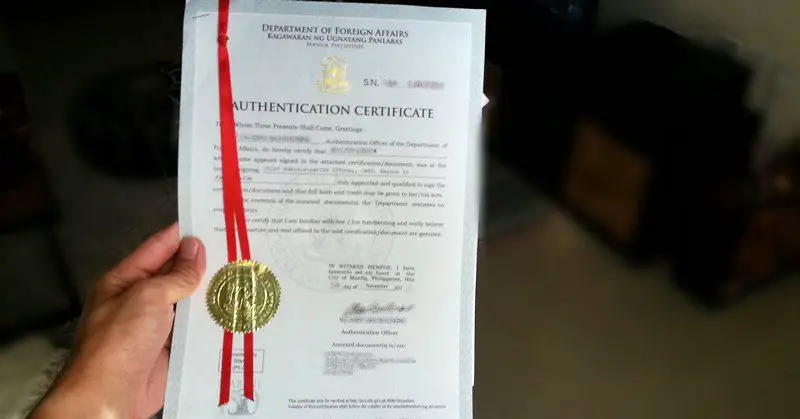The Philippine Embassy in Manama, Bahrain has announced that it will no longer affix the “red ribbon” to all authentication and acknowledgment certificates starting June 15, 2019.
ALSO READ: How to Renew Philippine Passport in Bahrain
The advisory was made in accordance with a circular issued by the Department of Foreign Affairs (DFA) – Office of Consular Affairs. This could be attributed to the use of Philippine “Apostilles,” as part of joining the Apostille Convention with other countries.
Removal of Red Ribbon on PH Documents Starting June 15 – Embassy
The Philippines became part of the Apostille Convention on May 14, joining other Apostille-contracting countries in the process. As a result, the practice of affixing red satin ribbons to authenticate documents has been replaced with an “Apostille” instead.
The Philippine Apostille certifies the authenticity of a document — a function similar to the red ribbon’s before the Apostille Convention became effective in the country.

How does this new authentication process work? Let’s say you have a Philippine document that will be used in another Apostille-contracting country (e.g. Bahrain). Once you get this document “Apostillized,” you no longer need to have it authenticated or legalized by the Embassy or Consulate General of the country that you’re going to.
Likewise, people from other Apostille-contracting countries who would like to use their documents in the Philippines no longer need to have these authenticated by the Philippine Embassy or Consulate General — as long as these have been Apostillized, as well.
Thus, for countries that are part of the Apostille Convention, the document authentication process between them is now much easier, more affordable, and hassle-free.

What if my destination country isn’t part of the Apostille Convention?
If your country of destination isn’t part of the Apostille Convention, the previous process of authentication still applies. Your Philippine document should be authenticated or legalized by the Embassy of that country. Also, a document from this country should be authenticated by the Philippine Embassy or Consulate General before it can be used in the Philippines.
If you’re not sure whether your destination is part of the Apostille Convention or not, it’s best to contact the Embassy or Consulate of that country in advance. What’s more, you could also ask the recipient of your document if an Apostille is required in your particular case.

ALSO READ: Emergency Numbers & Hotlines in Bahrain
DISCLAIMER: The details presented above are for information-sharing purposes only. To know more about the latest document authentication process, please visit the official websites of the Philippine Embassy in Bahrain as well as the Department of Foreign Affairs (DFA).
